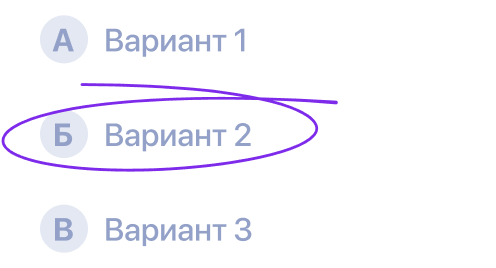Ethical behavior and social responsibility
Выбери формат для чтения
Загружаем конспект в формате doc
Это займет всего пару минут! А пока ты можешь прочитать работу в формате Word 👇
Management I
Week Two
Chapter 3: Ethical behavior and social responsibility
1. What is ethical behavior?
2. How do ethical dilemmas complicate the workplace?
3. How can high ethical standards be maintained?
4. What is corporate social responsibility?
5. How do organizations and governments work together in society?
----------------------------------------------------------
What is ethical behavior?
Ethics in the Workplace
Maintaining High Ethical Standards
Corporate Social Responsibility
Organizations and Society
- Laws, values, and ethical behavior
- Alternative views of ethics
-Cultural issues in ethical behavior
- Ethical dilemmas at work
- Rationalizations for unethical behavior
- Factors influencing ethical behavior
- Ethics training
- Whistleblower protection
- Ethical role models
- Codes of ethical conduct
- Stakeholder issues and analysis
- Perspectives on corporate social responsibility
- Evaluating corporate social performance
- How governments influence organizations
- How organizations influence governments
- Role of corporate governance
1
Ethics sets standards of good or bad, or right or wrong, in one’s conduct.
Ethical behavior is “right” or “good” in the context of a governing moral code. A business needs to develop moral standards for a group of people who will work together toward the common goals of profit for the firm. Each individual in the group will have their own personal moral standards, but employees may find that the moral standards imposed by those at the top in a business may result in possible harm to those at the bottom or to others outside the company. An employee may feel compelled to resolve the conflict between loyalty to an employer and the performance of an illegal or immoral act ordered by that employer by simply following the employer’s direction. In other words, in developing standards of business ethics, an employee has personal economic interests in continuing employment that may compromise his or her personal moral standards.
Moral standards can be derived from different sources, and there is much debates among ethicists about the origins of these standards. One theory is that our moral standards are simply the same as actual or positive law, that our ethical decisions are made simply upon the basis of whether an activity is legal. Positive law establishes the standard for ethical behavior.
Others believe that our moral standards are derived from a higher source and that they are universal. Often labeled natural law, this school of ethical thought supports the notion that some standards do not exist because of law (and, indeed may exist in spite of laws). For example, there was time when the United States permitted slavery. Even though the positive allowed the activity and the standard of positive law considered slave ownership ethical, natural law dictated that the deprivation of others rights was unethical.
Lawrence Kohlberg identified six stages of moral development:
Level One: Pre-conventional Stages
1. Punishment and Obedience Orientation - At this stage, the physical consequences of an act wholly determine the goodness or badness of that act. The child's reasons for doing the right thing are to avoid punishment or defer to the superior physical power of authorities. There is little awareness that others have needs similar to one’s own.
2. Instrument and Relativity Orientation- At this stage, right actions become those that can serve as instruments for satisfying the child’s own needs or the needs of those for whom the child cares.
At these first two stages, the child is able to respond to rules and social expectations and can apply the labels good, bad, right, and wrong. These rules, however, are seen as something externally imposed on the self. Right and wrong are interpreted in terms of the pleasant or painful consequences of actions or in terms of the physical power of those who set the rules.
Level Two: Conventional Stages
Maintaining the expectations of one's own family, peer group, or nation is now seen as valuable in its own right, regardless of the consequences.
1. Interpersonal Concordance Orientation - Good behavior at this early conventional stage is living to the expectations of those for whom one feels loyalty, affection, and trust, such as family and friends. Right action is conformity to what is generally expected in one's role as a good son, daughter, brother, friend, and so on.
2. Law and Order Orientation - Right and wrong at this more mature conventional stage now come to be determined by loyalty to one's own larger nation or surrounding society. Laws are to be upheld except where they conflict with other fixed social duties.
Level Three: Post-conventional, Autonomous, or Principled Stages
1. Social Contract Orientation - At this first post-conventional stage, the person becomes aware that people hold a variety of conflicting personal views and opinions and emphasizes fair ways of reaching consensus by agreement, contract, and due process.
2. Universal Ethical Principles Orientation - At this final stage, right action comes to be defined in terms of moral principles chosen because of their logical comprehensiveness, universality, and consistency.
At these stages, the person no longer simply accepts the values and norms of the groups to which he or she belongs. Instead, the person now tries to see situations from a point of view that impartially takes everyone's interests into account. The person questions the laws and values that society has adopted and redefines them in terms of self-chosen moral principles that can be justified in rational terms.
Moral relativism (also called situational ethics) establishes moral standards according to the situation in which the dilemma is faced. In other words, moral relativism might serve as the moral justification of ethics or (sometimes) law violation.
A final source of moral standards is religious beliefs or divine revelation. The source of standards can be the Bible or the Koran or any inspired book or writing someone believes has resulted from divine revelation.
Values are broad beliefs about what is appropriate behavior. Terminal values are preferences about desired end states, such as the goals one strives to achieve in life (self-respect, family security, freedom, inner harmony, and happiness, etc.). Instrumental values are preferences regarding the means to desired ends.
Alternative Views of Ethics
In the Justice view ethical behavior treats people impartially and fairly. Procedural justice is concerned that policies and rules are fairly applied. Distributive justice is concerned that people are treated the same regardless of personal characteristics. Inter-actional justice is the degree to which others are treated with dignity and respect.
Cultural relativism suggests there is no one right way to behave; ethical behavior is determined by its cultural context.
Universalism suggests ethical standards apply absolutely across all cultures.
Ethical imperialism is an attempt to impose one’s ethical standards on other cultures
2
An ethical dilemma is a situation that although offering potential benefit or gain is also unethical.
RATIONALIZATIONS FOR UNETHICAL BEHAVIOR:
• Convincing yourself that the behavior is not really illegal
• Convincing yourself that the behavior is in everyone’s best interests
• Convincing yourself that nobody will ever find out what you’ve done
• Convincing yourself that the organization will “protect” you
FACTORS INFLUENCING EHICAL BEHAVIOR:
3
Ethics training seeks to help people understand the ethical aspects of decision making an to incorporate high ethical standards into their daily behavior.
A whistleblower exposes the misdeeds of others in organization.
A code of ethics is a formal statement of values and ethical standards.
4
Corporate social responsibility is the obligation of an organization to serve its own interests and those of society.
Organizational stakeholders – those persons, groups, and other organizations directly affected by the behavior of the organization and holding a stake in its performance.
Four Strategies of Corporate Social Responsibility – from obstructionist to proactive behavior
Obstructionist Strategy
“Fight social demands”
Meet economic responsibilities
Defensive Strategy
“Do minimum legally required”
Meet economic and legal responsibilities
Accommodative Strategy
“Do minimum ethically required”
Meet economic, legal and ethical responsibilities
Proactive Strategy
“Take leadership in social initiatives”
Meet economic, legal, and ethical, and discretionary responsibilities
Criteria for evaluating corporate social performance:
5
Governmental influence: laws, regulations, agencies
Organizations influence governments:
• Lobbying – expresses opinions and preferences to government officials
• Political action committees – collect money for donation to political campaigns






